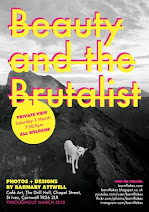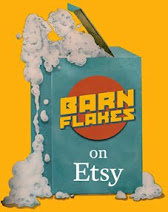Yes I'm a stut-stut-stutterin' man
And I can't ta-ta-ta-talk worth a damn
And I can't ta-ta-ta-talk worth a damn
Sometimes I wanta cry cry
Sometimes I wanta die
John Lee Hooker, Stuttering Blues (1953)
Lately you've started to stutter
As though you had nothing to say.
Leonard Cohen, The Old Revolution (1969)
And I can't ta-ta-ta-talk worth a damn
And I can't ta-ta-ta-talk worth a damn
Sometimes I wanta cry cry
Sometimes I wanta die
John Lee Hooker, Stuttering Blues (1953)
Lately you've started to stutter
As though you had nothing to say.
Leonard Cohen, The Old Revolution (1969)
A recent song that got a lot of radio airplay is Stuttering by Ben's Brother – one in a long line of songs in popular music either about or featuring stuttering, or both.
One of the earliest known examples is K-K-K-Katy, written in 1917 by Geoffrey O'Hara and hugely popular in both the first and second World Wars at military training camps. Advertised as 'The Sensational Stammering Song Success Sung by the Soldiers and Sailors', it concerns Jimmy, a young soldier who stuttered when trying to speak to girls. He eventually manages to speak to the eponymous Katy, the "maid of hair of gold":
K-K-K-Katy, beautiful Katy,
You're the only g-g-g-girl that I adore;
When the m-m-m-moon shines,
Over the cowshed,
I'll be waiting at the k-k-k-kitchen door.
From the 1960s until the 80s various popular songs have featured singers (purposely) stuttering but not been about stuttering. The most famous ones include:
My Generation – The Who (1965)
Changes – David Bowie (1971)
Benny and the Jets – Elton John (1973)
You Ain't Seen Nothing Yet – Bachman Turner Overdrive (1974)
Psycho Killer – Talking Heads (1977)
Bad To The Bone – George Thoroughgood (1982)
These songs didn't appear to be attacking stutterers or about stuttering in any way. Stuttering just sounded good. Stuttering as a musical effect, if you will. There was no electronic trickery in these songs – the stuttering was done by the singer.
With the explosion of rap music, electronic recording and sampling in the 1980s, it seemed every song needed a sampled stutter – which could now be done with ease electronically. Most famously, Paul Hardcastle's 19 (1985) with its repetitive beats and stuttered spoken samples seemed to herald the birth of a new kind of music – on Top of the Pops anyway.
Predictably, advertising also got into the act. Most memorably (and annoyingly) L'Oreal's Studio Line ad, featuring jazz playing models against a background of post-modern Mondrian with "Sculpt your hair, any way you like it. Studio Line – create your look" as its chorus. This was "borrowed" from another song from the time also featuring stuttering, Chaka Khan's I Feel For You.
With rap, having a stutter was seen (understandably) as a weakness, much in the same way as a tennis player with a racket without strings or a runner without legs – not impossible, but pretty difficult, and not very cool but possibly quite amusing to watch. So you had LL Cool J boasting, "When I'm involved all the amateurs stutter" on .357-Break It On Down (1987); Rob Base and DJ EZ Rock saying simply "I won't stutter" (It Takes Two, 1988); "When you start to stutter that's when you had enough of / Biting it, I make you choke, you can't provoke" say Eric B and Rakim on I Ain't No Joke (1987); and NWA "didn't stutter when I said "Fuck Tha Police"" in 1988, to name but a few.
This mocking culminated in 1988 with Stutter Rap (No Sleep Til Bedtime) by Morris Minor and the Majors which managed to poke fun at stutterers, the Beastie Boys, and other songs featuring stuttering – in particular Paul Hardcastle's 19 (and Chaka Khan's I Feel For You):
"Well no-one's ever seen what I mean
From the age of n-n-n-n-n-n-thirteen
We've all been caught in a m-m-mouth trap
So join with us and do the st-st-st-st-st-st-st-stutter rap"
Since then, the tradition has continued steadily. In 1991, old skool rapper Kool Moe Dee rapped "Make no mistake, we don't shake or stutter" on Rise 'n' Shine. And in 2006, British rapper Lady Sovereign rapped, "Repeating yourself like you got a stutter with all you mutter" on Blah, Blah.
Can you imagine any other affliction that comes in for so much flack? Poets dissing dyslexics, perhaps? Or chocolatiers scoffing at diabetics?
Famously, the singers Carly Simon and Gareth Gates stutter. Singing was a way for them to overcome their stuttering: like most stutterers, they don't stutter whilst singing – but possibly would do if rapping. Interestingly, many stutterers also don't stutter whilst whispering, or putting on a voice, or speaking in a foreign language.
With the digital computer age, stuttering now more than ever feels like a technological thing – whether we want it or not (usually not). Technical glitches and hitches, hiccups and fuckups, crashes and mashes happen whether on digital TV, broadband, CDs, DVDs, hard discs, graphics, file formats – all from time to time seem to emulate stuttering when they go wrong.













No comments :
Post a Comment